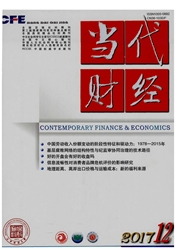

 中文摘要:
中文摘要:
预期是人们未来经济行为的重要依据,而如何引导预期则成为各国央行的重要议题。在测算我国通货膨胀预期的基础上,通过设定时变参数模型,识别通货膨胀预期的驱动因素,深入探讨央行实际政策操作对通货膨胀预期的影响。实证结果表明,影响我国居民通货膨胀预期的主要因素是数量型货币政策、价格型货币政策和实际通货膨胀率。但是:第一,价格型货币政策短期内并不能发挥逆向调控作用,反而会恶化通胀预期;第二,通胀预期驱动因素不管在数量上还是作用强度都存在时变性,特别是汇率在汇改之后不再影响通胀预期;第三,房价与输入性通胀不是居民通胀预期的影响因素。
 英文摘要:
英文摘要:
Expectation is an important basis for future economic behaviors, and how to guide ex- pectations has become an important issue for the central banks of every country. Based on the calcu- lation of inflation expectations in China, through setting up the time-varying parameters model and i- dentifying the driving factors of inflation expectations, this paper conducts an in-depth exploration into the impact of the practical policy operations of the central bank on inflation expectations. The empiri- cal results show that the main factors affecting the inflation expectations of Chinese residents are the quantitative monetary policy, the price-based monetary policy and the actual inflation rate. However, firstly, the price-based monetary policy cannot play a reverse regulation role in a short term; on the contrary, it will worsen the inflation expectations. Secondly, the driving factors of inflation expecta- tions have the nature of time-varying, whether in the number or in the action intensity, especially when the exchange rate does not affect inflation expectations after the exchange rate reform. Thirdly, housing prices and the imported inflation are not the factors affecting the inflation expectations of residents.
 同期刊论文项目
同期刊论文项目
 同项目期刊论文
同项目期刊论文
 期刊信息
期刊信息
